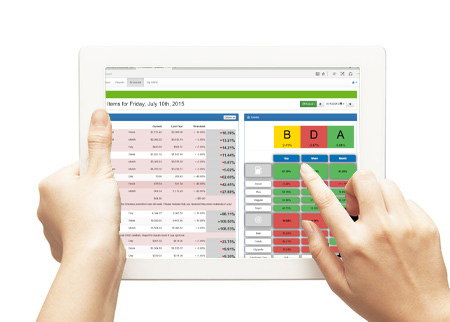
April 22, 2016
Scorecards catch things in a c-store. There are a lot of details to take care of in a C-Store. It is easy to let small details slip through the cracks. Here are 5 things that slip through the cracks in a c-store that daily scorecards catch:
- Tank Meters are not calibrated correctly – Tank meters are prone to a lot of action and hardware with action can easily lose its calibration. Scorecards will relay what the meters are reading which will immediately flag any that are out of calibration. Though this is a normal check in most companies, it is often overlooked. If that goes on too long, you can easily find yourself with an outage you weren’t aware was coming.
- No change policies are not being followed. We have all been there. Someone asks for help and you know you are in the position to help them, so you do. This can quite often be the case when No Change policies are in place. Rather then force themselves into a debate about store policy, they just provide the change to make the customer happy. However, you have good reasons for having it as a policy. You need to make sure each drawer is capably of providing proper change throughout the day. By keeping track of “No Sale” transactions, you can immediately be flagged when your cashiers are giving change.
- Where your marketing programs are working and not working. By tracking customer counts you can determine if your Marketing efforts are having impact. Any Customer Count report will give you this. But if you can parallel your perspective of where they are working and not working by paralleling your study to customer count and sales, it may help you streamline your marketing activity better. A simple example, promotions can be studied to see how sales are changing. If they are only working in 50% of your stores, then you can adjust how those stores promote or change promotions.
- What your store mangers need to focus on today. The scorecard provides a list of alerts telling Store Managers what they need to focus on each day in order to pull their grade up. What may be on that list on the 25th of the month may be completely different than what was on the list on the 4th of the month. With the many things that can impact performance in a C-Store Company, it is very important to keep up. If waiting on weekly reports or time for the Supervisor to run analysis the Store Manager will lose momentum and be likely to fail in reaching their monthly goals. The list can get too large, too quickly. Scorecards approaches issues with the “one bite at a time” philosophy. Dealing with issues on a daily basis can prevent larger problem situations and keep them on track towards their goals. When doing so, today’s list may be completely different then yesterday’s list.
- Are your employees stealing from you? One of the hardest things to discover before it is too late, is whether your employees are refunding imaginary sales or stealing money from the drawer. It is very plausible that someone mishandled change in a transaction, or if customers actually did return merchandise. Unfortunately, that is not always the case when these transactions pop up repeatedly. By keeping a constant check on Over/Short and Refund transactions, you can see the patterns as this fraudulent activity begins. Clearly, store managers are able to address theft more easily.
The day to day activity in a C-Store is busy and fast paced. It is difficult to monitor everything that happens. Scorecards catch things in a c-store. They use data analytics to monitor the many things that make or cost you money. As such, you know when things go awry in these areas Of course, there are many more things scorecards will tell you that you didn’t know as well. The important thing is that viewing all of them in a single page. In that way, you stay on top of the money-maker. It makes the daily work simple and do-able.